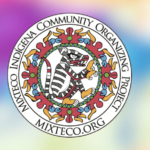
OXNARD — On June 25, 2024, CAUSE, MICOP, and Lideres Campesinas — longtime farmworker rights organizations in Ventura County — brought local stakeholders and leaders together to release a new report, Healing Land, Collective Power, which laid out a vision for advancing farmworker-led cooperatives and land trusts in local agriculture.
The three organizations came together in 2022 to begin studying the potential to develop farmworker cooperatives in Ventura County. The multi-year research, funded by the Robert Wood Johnson Foundation, included surveys and focus groups with farmworkers, interviews with alternative agriculture experts across the country, and a map of farmland ownership in Ventura County.





